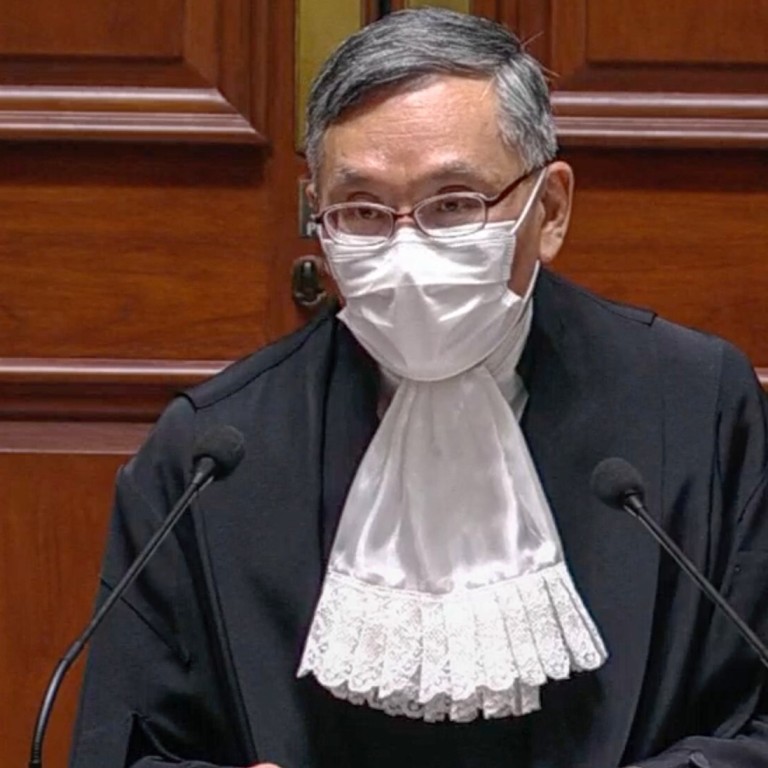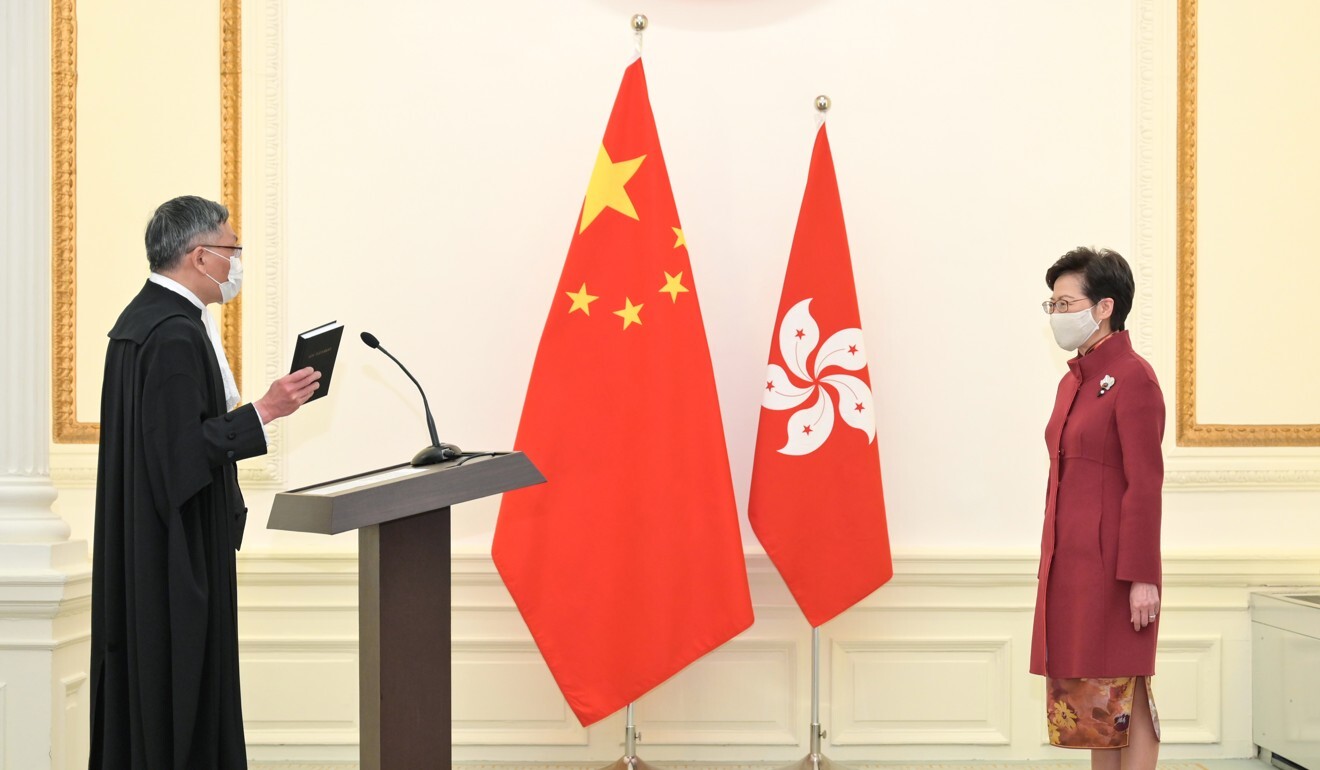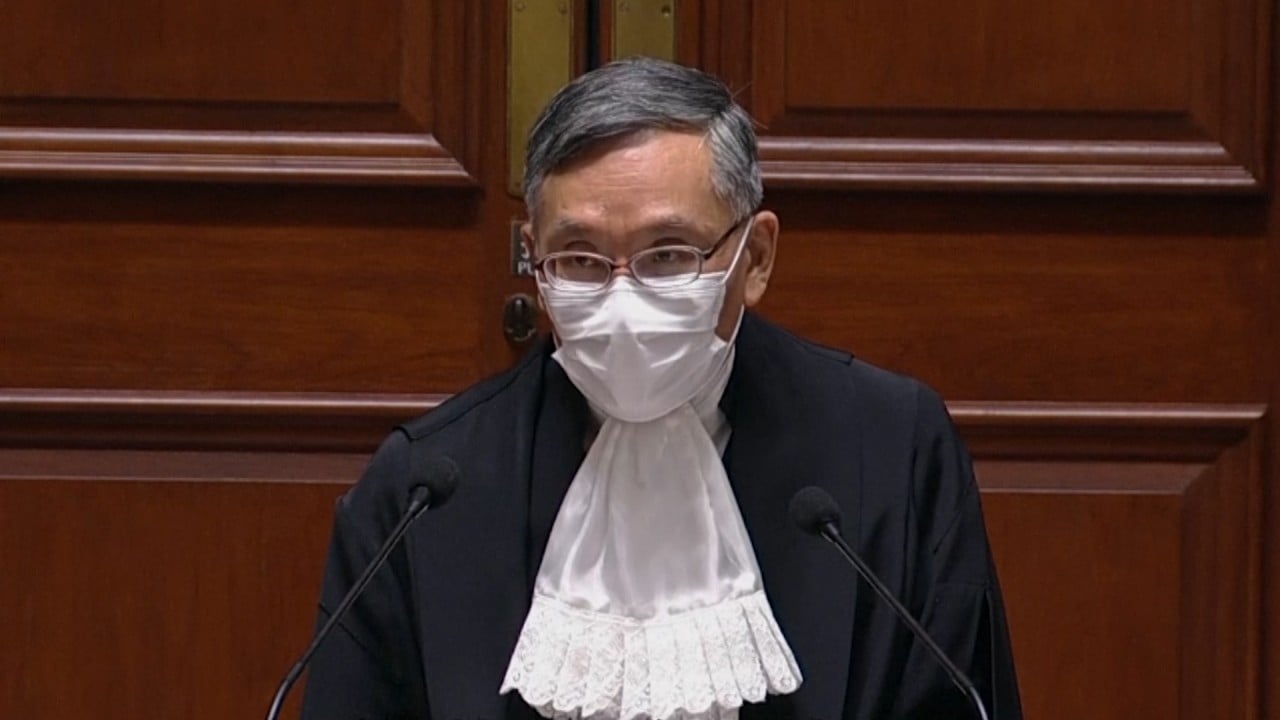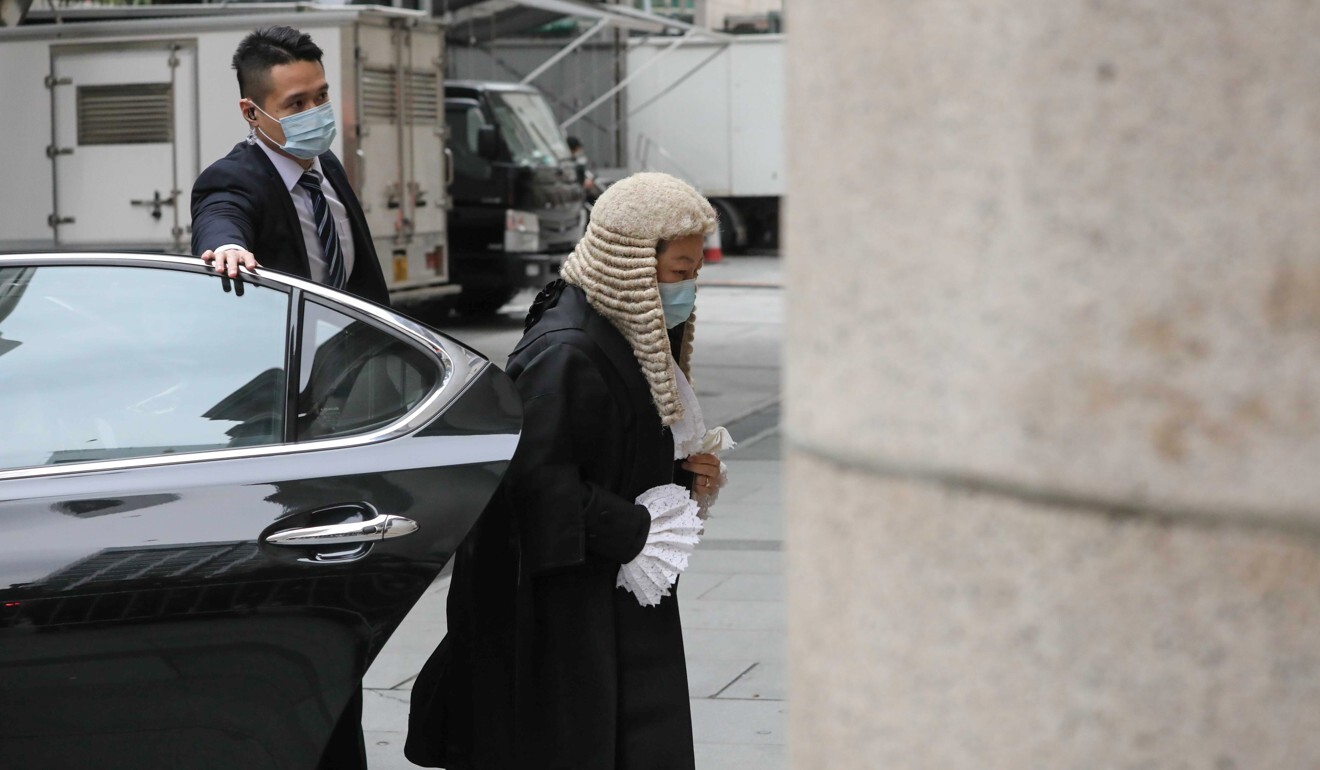
Hong Kong’s new chief justice defends judicial independence in face of rising attacks on judges in inaugural speech
- Doxxing, threats of violence are ‘as futile as they are reprehensible’ in influencing courtroom decisions, says Andrew Cheung as he assumes new role
- Independence of judiciary crucial to maintain public confidence and city’s reputation as one governed by the rule of law under ‘one country, two systems’, he says
Hong Kong’s new chief justice warned against a rising tide of attacks on judges over politically charged court cases and dismissed the notion of setting up a panel to review sentencing guidelines as he took his oath of office on Monday.
“Whilst the freedom of speech of everyone in society must be fully respected, there must not be any attempt to exert improper pressure on the judges in the discharge of their judicial functions,” Cheung said in his inaugural speech to launch the new judicial year.

“In this connection, it has to be stressed that attempts to exert undue pressure on our judges by means such as threats of violence or doxxing are as futile as they are reprehensible.”
At a media briefing later, Cheung dismissed calls from pro-Beijing politicians for a sentencing council to tackle concerns about biased rulings, but he said there would be a review of the existing complaints mechanism against judges and welcomed constructive suggestions for reform as long as they did not infringe on judicial independence.
Focus on your own case. Focus on the law. Focus on the issues
“Focus on your own case. Focus on the law. Focus on the issues,” was his advice for judges. “Never mind what people will say about your decision. You just decide your case regardless.”
Cheung, 59, who succeeded Geoffrey Ma Tao-li, took his oath before Chief Executive Carrie Lam Cheng Yuet-ngor before delivering his remarks.
Seasoned jurist Andrew Cheung steps up as Hong Kong’s new chief justice
Pointing to challenges ahead, Cheung said cases with political undertones would inevitably come before him and his colleagues, which would trigger “extreme and harsh” partisan blowback.
While the courts would continue to protect the rights of individuals, they also had a responsibility to balance those freedoms with the interests of society as a whole, Cheung said in an apparent veiled message to the opposition bloc, which had accused judges of being too conservative.
The principle adopted upon Hong Kong’s handover from Britain to China in 1997 guarantees the city a high degree of autonomy in managing its affairs.
In rejecting the notion of the sentencing council, Cheung noted that deciding guilt and meting out punishment had always been the function of the bench, but he pledged to expedite appeal hearings that carried important implications to help guide lower courts.
He pledged to examine how to increase the transparency and accountability of the mechanism for filing complaints against judges, which was last reviewed in 2016.
When dealing with high-profile cases or cases with a political flavour, judges must be particularly careful with their appearance of impartiality
“Subject to the overriding consideration that there can be no undermining of judicial independence, the judiciary is receptive to and indeed welcomes all constructive suggestions on ways to further improve and enhance our operation and services,” he said.
Cheung also advised judges to put aside their personal views in the courtroom, pointing to the public’s expectation of impartiality.
“When dealing with high-profile cases or cases with a political flavour, judges must be particularly careful with their appearance of impartiality in terms of what they say in court or write in their judgments, or how they treat the parties, their lawyers or the witnesses,” he said.
“Any lapses in this regard, given the potentially polarising nature of these cases, could lead to suspicion of partiality, which is not conducive to maintaining public confidence in our judicial system.”
But he added: “The judiciary must comprise judges who are upright and who are prepared to uphold rights.”

01:04
Hong Kong’s new chief justice pushes back at attacks on judges
Speaking at the ceremony, Secretary for Justice Teresa Cheng Yeuk-wah reiterated her condemnation of arbitrary and malicious attacks on members of the bench.
“Any unfair or unfounded remarks with the ulterior motive of exerting pressure or undue influence on our judges in dispensing justice will be to no avail,” she said.
Cheng hit out at claims that the handling of national security law cases was a cause for concern. Under the new law, the chief executive is granted the power to designate a pool of judges to hear the cases, which has raised fears the executive branch would exert undue influence over the administration of justice.
Cheung stressed that any appointment of judges, including from overseas, should be based solely on their professional qualities. He did not reveal the list of the judges or whether any from overseas were among them, only saying the matter rested with the chief executive.
The top court often includes a visiting judge when convening its full five-member panel, a widely recognised testament to the quality of the legal system. But critics worry such an arrangement will be barred in national security law cases.
Cheng dismissed such views as “unfair and ill-informed”.

She noted Lam only had the power to determine the pool and not name individual judges to specific cases. That decision was made by the judiciary. She also cited recent appeal decisions tied to the 2019 protests that emphasised the element of deterrence as a critical factor when determining sentencing for illegal assembly offences involving violence.
Bar Association chairman Philip Dykes SC also warned against politically motivated “attacks that impute partiality or bad faith” to judges.
“Without judicial independence, a pearl of great price, we might as well pack up our bags and steal away, for Hong Kong is nothing without it,” he said.
Such attacks could occasionally constitute contempt of court, Dykes noted, and urged the secretary for justice to take action when they occurred.
“Although the Bar Association may protest, what it cannot do is to book the authors and publishers of unprincipled attacks on judicial independence,” he said. “Assuring accountability in these circumstances is primarily the job of the secretary for justice.”
Staying true to rule of law, Geoffrey Ma relied on expertise with a dash of common sense
His remarks were echoed by Law Society president Melissa Kaye Pang, who said: “To maintain trust in the judiciary and to prevent unreasonable attacks on judges, the Law Society has taken it as its duty to clarify misunderstandings and unfair criticisms at the first available opportunity. It is important that the Law Society remains a professional body and not some pseudo political party.”
Pang also took aim at “eminent legal practitioners and scholars” who openly said obedience to the law did not necessarily equate with the spirit of the rule of law.
Before the swearing-in ceremony, Lam issued a statement congratulating Cheung on his rise to the new office and expressed confidence judicial independence would continue to be upheld.
“I am confident that, under Chief Justice Cheung’s leadership, the judiciary will continue to be a bulwark of the ‘one country, two systems’ policy, and our judges will continue to safeguard the law and administer justice without fear or favour,” she said.

